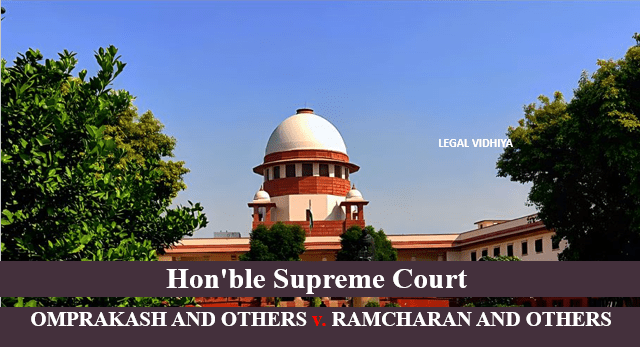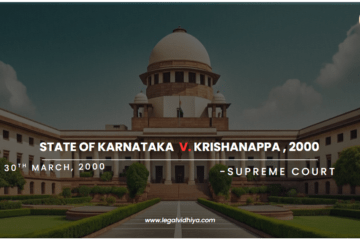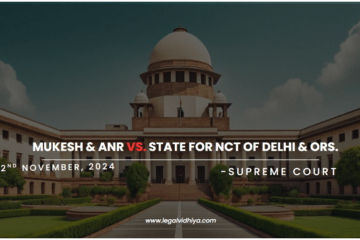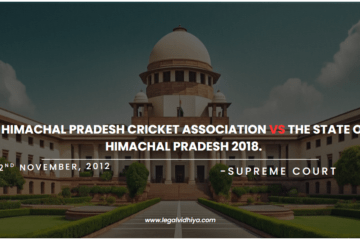
| Citation | (2009) 15 SCC 66 |
| Date of Judgement | May 5, 2009 |
| Court | Supreme Court of India |
| Case Type | Civil Appeal No. 3241 of 2009 |
| Appellant | Omprakash and others |
| Respondent | Ramcharan and others |
| Bench | S.B.Sinha and Mukundakam Sharma |
| Referred | Hindu Succession Act 1956: Sections : 15(1),(2), 372 |
FACTS OF THE CASE
Late Narayani Devi was the daughter of late appellant Ramkishori.
The daughter was married to Dindayal Sharma, who passed away three months after the marriage.
Narayani Devi, after the death of her husband, was not allowed to stay with her in-laws. She was not given any space in her matrimonial house.
When she was living with her parents, she was imparted education and therefore she got employment.
On 11.07.1996, she passed away leaving her self-acquired wealth interstate. After her death, her mother filed an application for the succession certificate. The respondents, the sons of late Dindayal’s sister, filed a similar application.
ISSUES RAISED
• Whether section 15(1) and (2) of Hindu Succession Act of 1956 would apply to the facts and circumstances of this case?
• Whether the petitioners or the respondents are entitled to the self-acquired wealth of late Narayani Devi?
ARGUMENTS
The petitioners had filed an application keeping in mind, section 372 of the Hindu Succession Act of 1956. They urged that Narayani Devi was given support at her paternal house where she got education and therefore got employed. On the contrary, upon her husband’s death, she was not given any place at her matrimonial house, no support during her lifetime. The council appearing on behalf of the plaintiff further urged that section 15(2) clause a should be used in interpreting, considering the facts and circumstances of the case.
JUDGEMENT
The judgement was delivered by justice S.B.Sinha. After considering all the facts and listening to contentions given by parties, the judge made certain observations regarding the law that it is silent regarding the self-earned wealth of a women after her death.
Section 15(1) of the Hindu Succession Act does not make any distinction between self-earned property and the acquired property of a woman. Further, the scope of section 151 of the said act was clarified.
The judge commented that “this is a hard case”, they cannot solely rely on the judgement on the basis of sympathy and sentiment. They cited a few cases to aid the above statement like in the case of Subha B. Nair & Ors. vs. State of Kerala & Ors 2,it was held that judgement cannot be given only on the basis of sentiment.
In Ganga Devi vs. District Judge, Nainital & Ors3, it was held that sentiment and sympathy has no role to play in delivering a judgement.
The judges after citing the mentioned cases delivered the judgement in favor of respondents, by declining the appeal. Further the court stated that there will be no order as to costs.
This case analysis is done by Bhumika Kathuria, of Vivekananda Institute of Professional Studies, intern at Legal Vidhiya.
1 General rules of succession in case of female hindus.
2(2008) 7 SCC 210
3(2008) 7 SCC 770




0 Comments